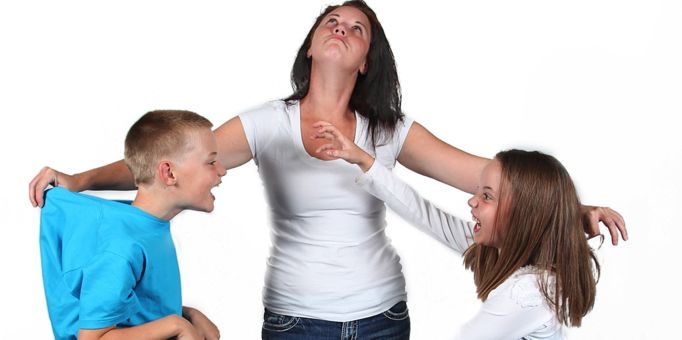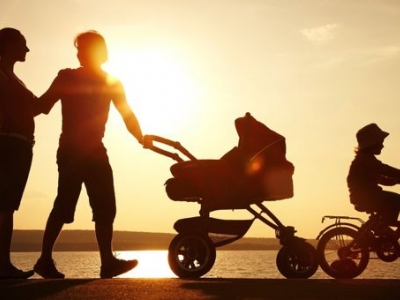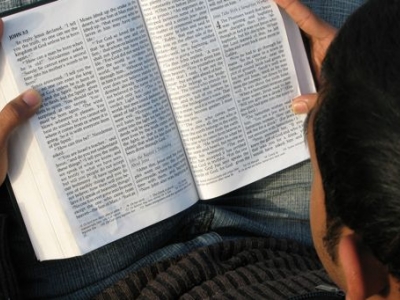
Peacekeeping questions
Jonathan Holt suggests a new question to ask after the fight is over.
There are plenty of times when I feel like a UN peacekeeping force working in the troubled area of my children’s relationships with each other. Sometimes there is a de-militarised zone, sanctions are imposed (often economic!), and usually a peace treaty is signed.
When entering into the war-zone to begin treaty negotiations, we try hard to be impartial and to settle the grievances. We aim to resolve the dispute and return the children to harmonious relationships.
Only recently have I been introduced to a very good question that will help get the peace treaty ratified by all sides. First let’s notice the good groundwork laid by the questions I already knew to ask.
Common questions in the peacekeeping process
Typically, when I wade into the fray, I try to get all sides to lay down their weapons. With younger kids, this may mean putting down the stick they were about to hit their sister with, or the ball they were about to throw at their brother. As children get older, they somehow learn that words are more powerful weapons, and so we require them to stop saying (or repeating) the spiteful or sarcastic comments. This is the cease-fire.
Next, I often try to find out how it started, using questions such as:
- What was happening?
- Who escalated the tensions?
- Was this payback for something?
- Did anyone use their superior power to gain an advantage (this can be bigger muscle, or more articulate arguments)?
All of this investigation is designed to uncover the problems and give the warring factions an idea of what they will shortly be saying sorry for.
Other strategies
A common strategy when helping children understand the consequences of their actions is to ask how they would feel if they were on the receiving end instead. I’m not always sure that this is the best way to go, especially if the conflict is still fresh. In the middle of the fight, the urge for self-protection is pretty strong. Knowing that the question is leading to self-incrimination, my children have been known to say they would not mind at all when pinched, hit or stolen from.
Perhaps a better angle is to tell a story, maybe involving yourself, but clearly made up. In this story, one character does something similar, so that your child has the chance to identify the wrong action elsewhere, before being asked if what they have just done is similar. However, asking this question can still cause the self-incrimination reflex to kick in, so don’t think it is a never-fail solution.
A new question
Let’s talk about the other half of the peace treaty negotiations, the half I have recently been working on. The question I have begun asking is: “What would you have liked your bother/sister to do instead?”. This question is about laying some groundwork so that the peace treaty will hold for a little bit longer next time.
I like this question for three reasons:
1. It is designed to help my children articulate their expectations. Some of the time, conflict comes because we have different expectations of what will happen. We may not even realise what our expectations are until they are not met. But as soon as our expectations aren’t met, our disappointment or hurt can quickly fuel anger.
It is important to be clear that simply asking for something different is not a guarantee it will happen. The value in saying it is for the person doing the talking, so they take their attention off the offence and think about where a resolution may be found.
2. The question helps the person listening to the answer. As they listen, they learn something about the other party. Many times, the war has started over something small, something that could have been done differently.
A good follow up question to ask the listener is whether they think they could actually do what is being asked of them. To turn the reporting of offences into a dialogue about a solution, we may sometimes need to ask leading questions like this.
3. It puts a stop to the rehashing of past troubles. One common weapon that gets a workout is the history lesson of past failures and hurts. When this becomes the strongest story about a relationship, it will be hard to move past the conflict.
This new question is asking for a positive future action. It places the activity in the context of the relationship: “What I would have liked you to do …” This avoids the dangerous world of absolutes (you never give me a turn … he always starts it … she only thinks about herself…).
I think this is a good question to add to your skilful, post-fight negotiations. Asking this question might turn an unpleasant conflict into a moment where the children grow in their understanding of themselves, of each other, and how their relationship works.
For more articles from Growing Faith, subscribe to our monthly e-newsletter.
To hear about the latest books and resources from Youthworks Media, subscribe here.







